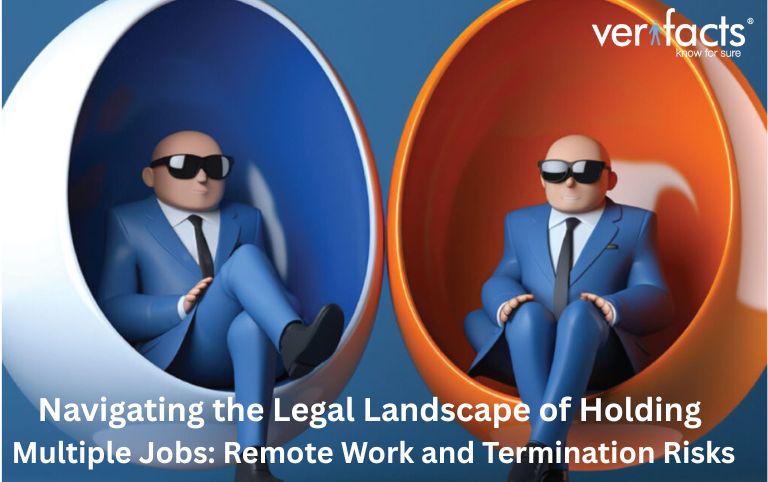
🌐 Introduction
The COVID-19 pandemic reshaped the global work landscape, accelerating the adoption of remote and hybrid work models. This shift not only changed how employees interact with organizations but also created new opportunities for individuals to explore secondary employment or side hustles. Whether driven by financial needs, professional growth, or entrepreneurial ambitions, holding two jobs has become increasingly common. However, this trend raises important questions about its legality, potential risks, and professional consequences. Understanding these dynamics is crucial for employees seeking to balance multiple roles while safeguarding their careers.
In the United States, the general rule is that employees are free to hold more than one job, unless explicitly prohibited by a valid employment contract. U.S. labor law does not inherently forbid “moonlighting” or outside employment. However, the principle of “at-will employment” plays a significant role. Under this doctrine, employers have the right to terminate employees at any time for almost any reason—provided the action does not violate federal or state laws, contractual terms, or established public policy. This means that while taking up a second job may not be illegal, it could still lead to unintended consequences if not managed carefully.
Although holding a second job is generally permissible, certain situations can create serious risks for termination. One major concern is a conflict of interest, where the secondary employment directly competes with the primary employer or involves similar work that could compromise loyalty and confidentiality. Similarly, the misuse of company resources, such as using office equipment, software licenses, or working hours from your primary employer for the benefit of another job, can result in disciplinary action or termination.
Another subtle yet significant risk involves diminished performance. Even if an employee consistently outperforms peers, a noticeable decline in focus, availability, or productivity due to juggling two jobs may raise red flags. Employers prioritize commitment and reliability, and any perception that a second job interferes with primary responsibilities may justify corrective measures.
Before accepting a secondary role, employees should carefully review contractual and organizational obligations. The first step is to check for non-compete clauses or other contractual restrictions that may explicitly forbid working for competitors or engaging in outside employment without disclosure. Many organizations include moonlighting policies in their employee handbooks, outlining whether outside work is permitted and under what conditions it must be reported.
Employees should also adopt a transparent and proactive approach when appropriate. While disclosure may not always be required, informing your employer—especially when the side job is unrelated to the industry—can build trust and minimize misunderstandings. Additionally, evaluating your capacity to manage time effectively is essential, as overcommitting can jeopardize both positions. ⏳
The rise of remote work adds a unique dimension to the issue of multiple jobs. Working from home often blurs the boundaries between personal and professional life, making it easier to discreetly manage dual roles. However, this flexibility comes with additional responsibilities and risks. Employees must ensure they are not using company property, tools, or internet resources from one employer to perform work for another.
Hourly employees, in particular, must exercise caution. Attempting to bill hours to one employer while simultaneously working for another not only violates workplace ethics but could also constitute fraudulent conduct. Maintaining clear distinctions between work schedules, devices, and resources is crucial to avoid compliance and performance issues.
In today’s evolving professional landscape, the concept of holding two jobs has become increasingly viable, thanks to the flexibility of remote work. However, employees must remain mindful of the legal, ethical, and professional implications associated with this choice. While U.S. law generally allows multiple jobs in the absence of contractual restrictions, the at-will employment framework means job security is never fully guaranteed.
🔑 Key Takeaways:
-
⚖️ Always review contracts and company policies before pursuing outside work.
-
🚫 Avoid conflicts of interest and misuse of company resources.
-
⏳ Manage time effectively to prevent performance issues.
-
🔒 Keep remote work boundaries clear and maintain separate use of resources.
-
📣 When in doubt, seek professional advice from an employment attorney.
By adopting a strategic and transparent approach, employees can minimize risks while enjoying the benefits of secondary employment. In the modern world of remote and flexible work, balance, integrity, and vigilance are the keys to safeguarding both your income and career. 🌐💼

